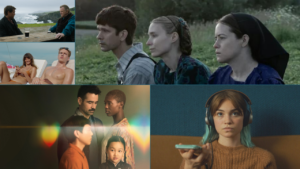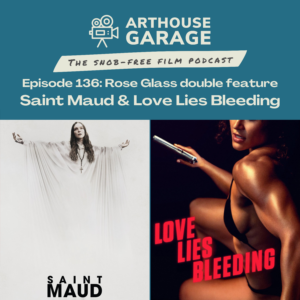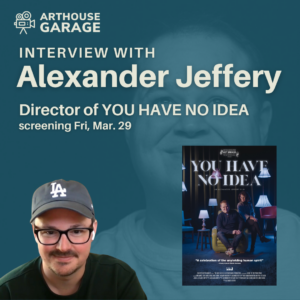The concept of religious belief can be hard to wrap your head around. Does a person hold beliefs because of the family or community they were born into? Or is it something internal? How much does cultural identity inform belief? What happens to your identity if, over time, your beliefs change? And what if you fall in love with someone with a different religious identity?
That final question is the subject of the new film romantic comedy/drama Simchas and Sorrows from writer and director Genevieve Adams. Adams also stars in the film as Agnes, a “devout atheist” who becomes engaged to her Jewish boyfriend Levi (Thomas McDonell) at the beginning of the film shortly before revealing to him that she is pregnant. As they discuss the details of becoming parents, Levi tells her that he expects her to convert Judaism before the wedding so that they don’t upset his family. “To marry the man of my dreams? It seems like a small sacrifice,” she tells him.
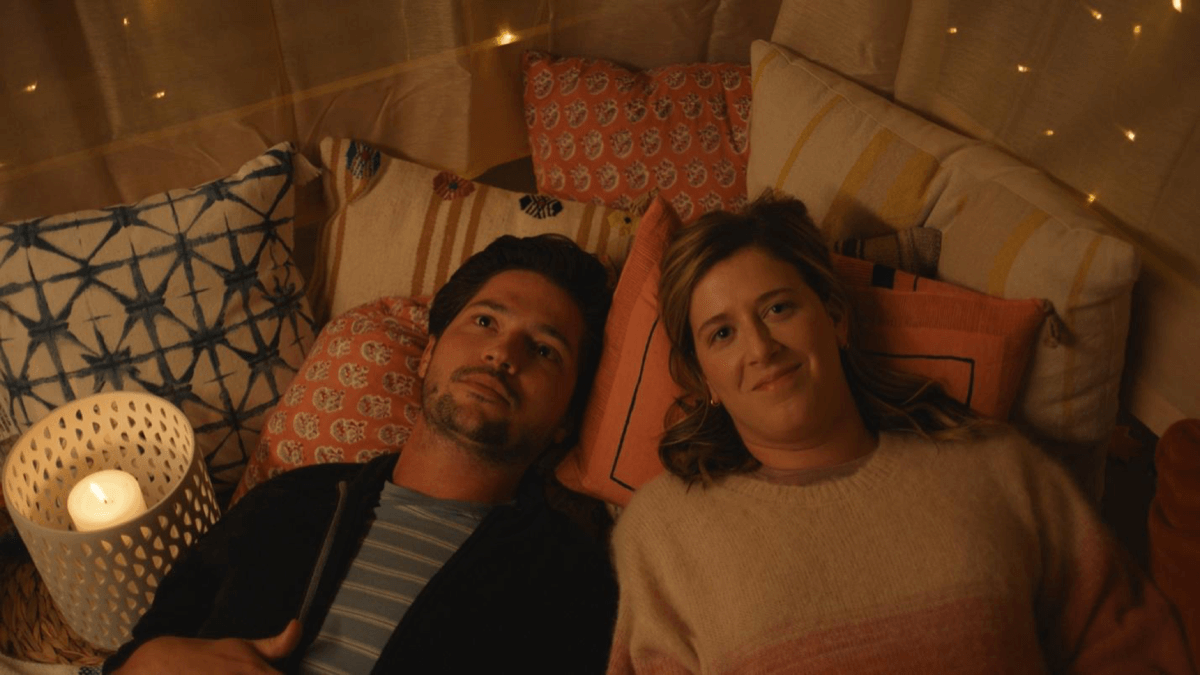
Of course, the sacrifice is bigger than Agnes anticipates. From there, the story largely follows the traditional rom-com structure but with a thematic emphasis on belief and religious identity running through the film. As a critic who’s quite interested in faith and doubt in cinema, the description of this film caught my eye when it played at the Bentonville Film Festival earlier this year, and it’s now available to watch on demand.
The religious storylines of Simchas and Sorrows are its most compelling. Agnes, we see in the film’s opening, went to Catholic school as a child and found the theology there unsatisfying. “You didn’t answer my question,” is the line of dialogue young Agnes leaves us with before we cut to present-day. After their engagement, Agnes and Levi begin attending a class led by the progressive Rabbi Cohen (Hari Nef), and the film includes a surprising amount of depth as it looks at Judaism in today’s world. While there are many quick references to Jewish customs and Yiddish words throughout the film, the scenes with Rabbi Cohen really pause and take time to dig in to questions of identity, anti-semitism, and what it means to live in the modern world as a person of the Jewish faith. There are extended scenes of sermons and classroom lectures, delivered beautifully by Nef, and these are some of the best scenes in the film.
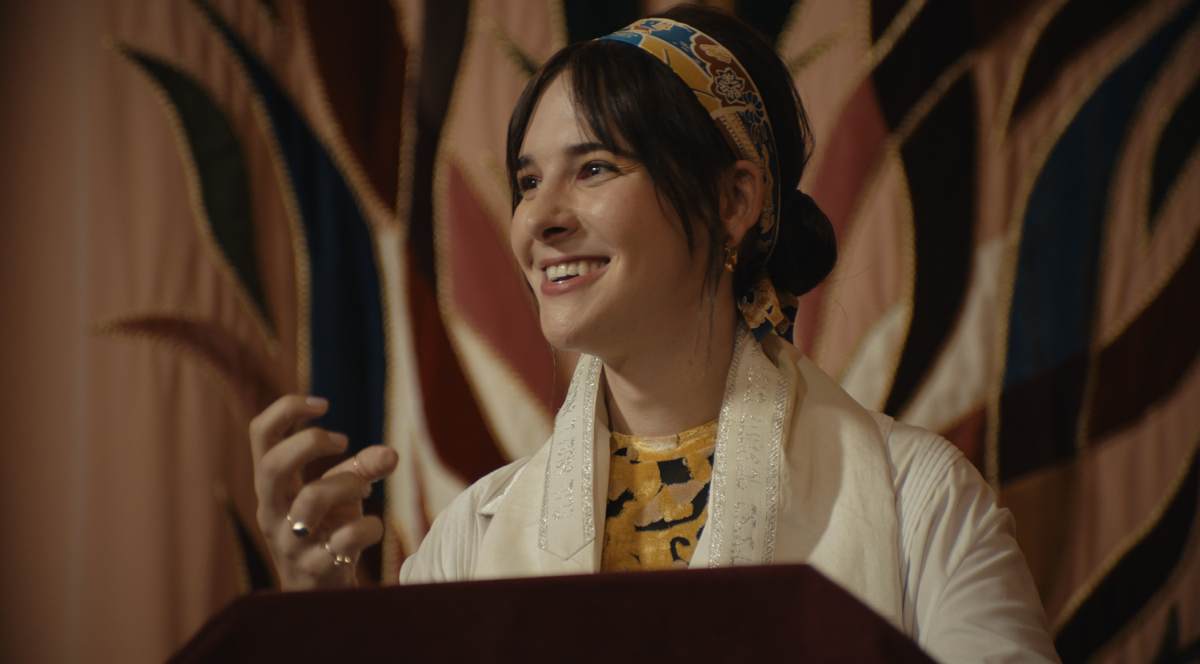
Comedically, Simchas and Sorrows is much more subtle than I initially expected. Genevieve Adams clearly has a wry, low-key sense of humor and that’s the kind of tone she sets for most of the film. Comedy is, of course, subjective; while I didn’t often find the film to be laugh-out-loud funny, I nevertheless appreciated much of the humor for how understated it was. And there are lines that stay with you, like when Agnes hears Rabbi Cohen talk about the shame often carried by the Jewish people, and she says, “So now I have Catholic guilt and Jewish guilt?”
But, some of the comedic dialogue feels unrealistic, like the children in the film, all of whom are unbelievably precocious. A few of the comedic scenarios also feel very contrived, like when Agnes attends a funeral and finds herself stuck in an open grave with her social nemesis. It felt like some of these scenes could have been revised or cut altogether and it would have made for a stronger finished product.
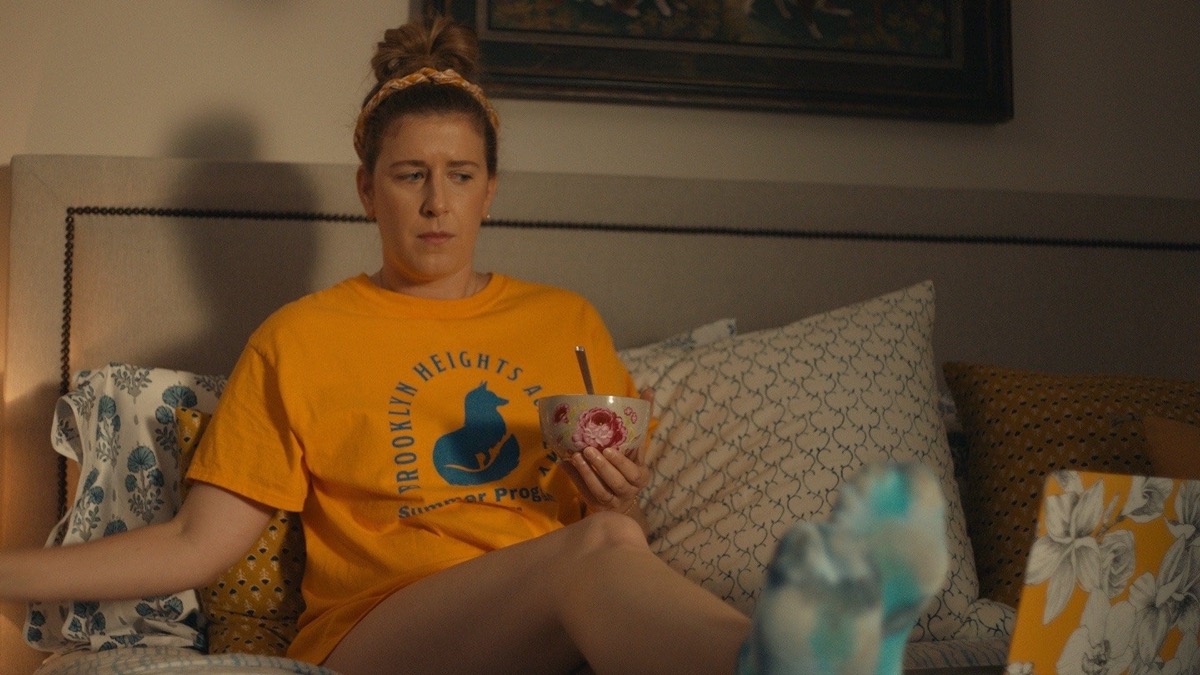
The romantic aspects of the film also aren’t quite as successful as the religious ones. The inevitable conflict between Agnes and Levi feels rushed, without enough lead-up to the big falling-out scene, and the subsequent resolution feels too easy, taking place over a single, relatively short conversation. During the separation, Agnes also has romantic tension with a filmmaker named Everett (Luke Forbes). This subplot unfortunately undermines the primary romance to a greater degree than was probably intended. Agnes’s chemistry with Everett is fantastic— so much so that it felt unrealistic for her to go back to Levi. (I also completely recognize that my own ex-religious bias may be informing this opinion, but I can’t help it— I’m team Agnes/Everett).
That issue aside, Simchas and Sorrows is an interesting look at religious identity tangled up with romance. The film is most effective when depicting the friction between Levi’s devoutness and Agnes’s non-religious mindset. In one scene, she asks him, “When are you going to stop trying so hard to please your parents?” In another, he is incredulous that she doesn’t understand why the holocaust is relevant to their breakup. They see the world through drastically different eyes, and the script is as its best when exploring that difference, and when examining Jewish viewpoints on things like traditions, holidays and funerals.
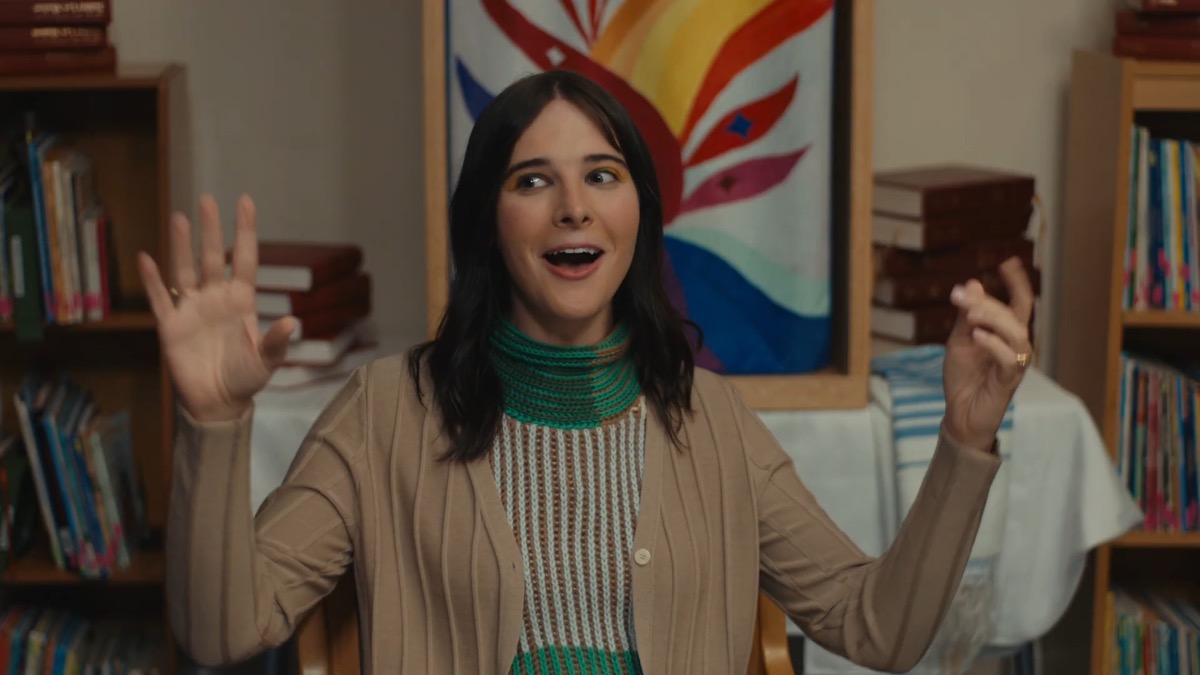
Ultimately, Simchas and Sorrows is an easy breezy watch that manages to bring up some thought-provoking questions on faith and identity, and will work especially well for fans of indie dramadies or rom-coms. Not all of the humor is successful, and the runtime feels a bit too long, but much of the screenwriting is great, as are many of the performances. Hari Nef is wonderful as Rabbi Cohen, and hearing her sermons alone is worth the price of admission. Also impressive: the vulnerability of Genevieve Adams, who put all of herself into this film as its writer, director and star. The end result has its issues, but Simchas and Sorrows feels like the authentic expression of an artist who is thoughtful, creative and empathetic, which is more rare in Hollywood today than it should be.


